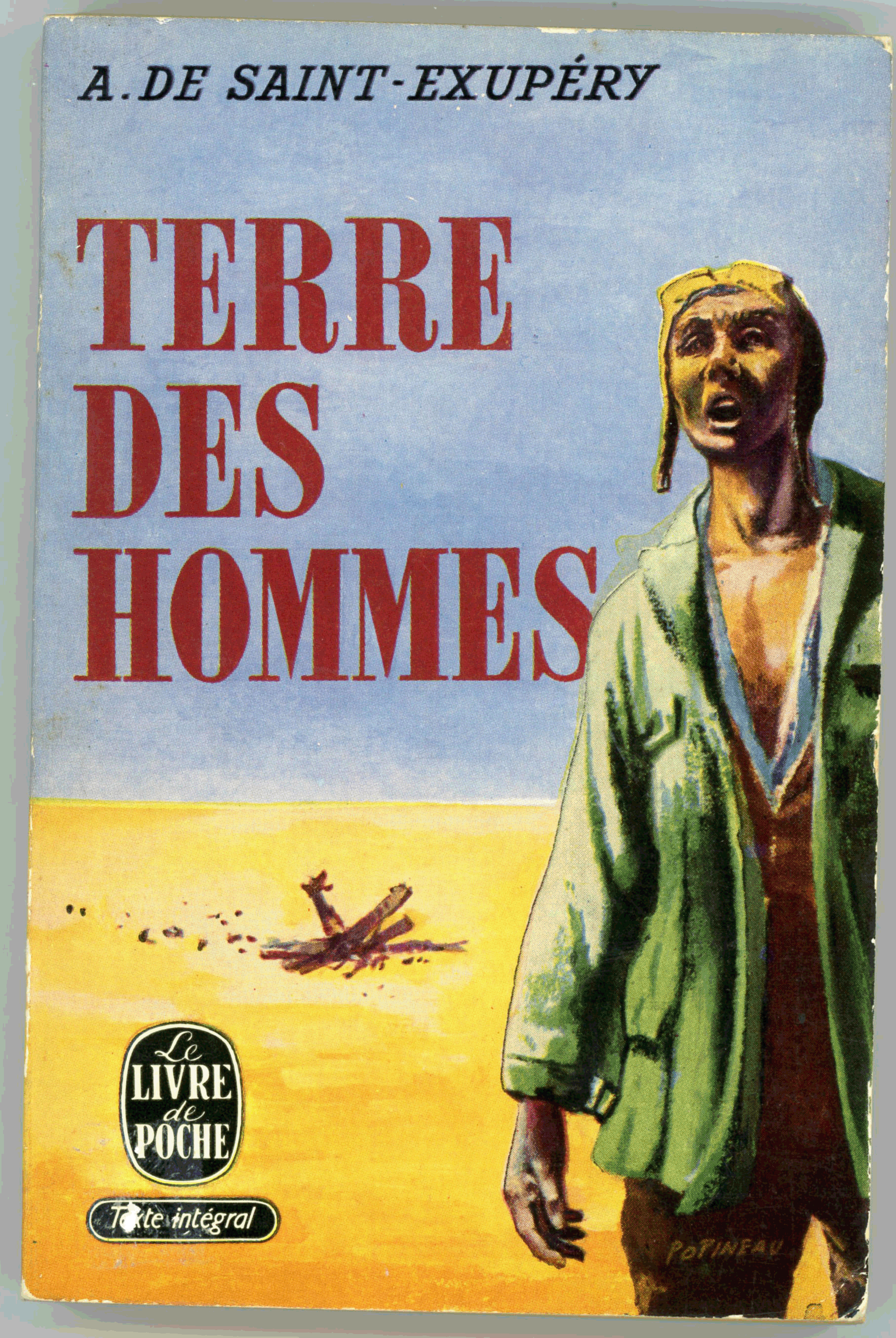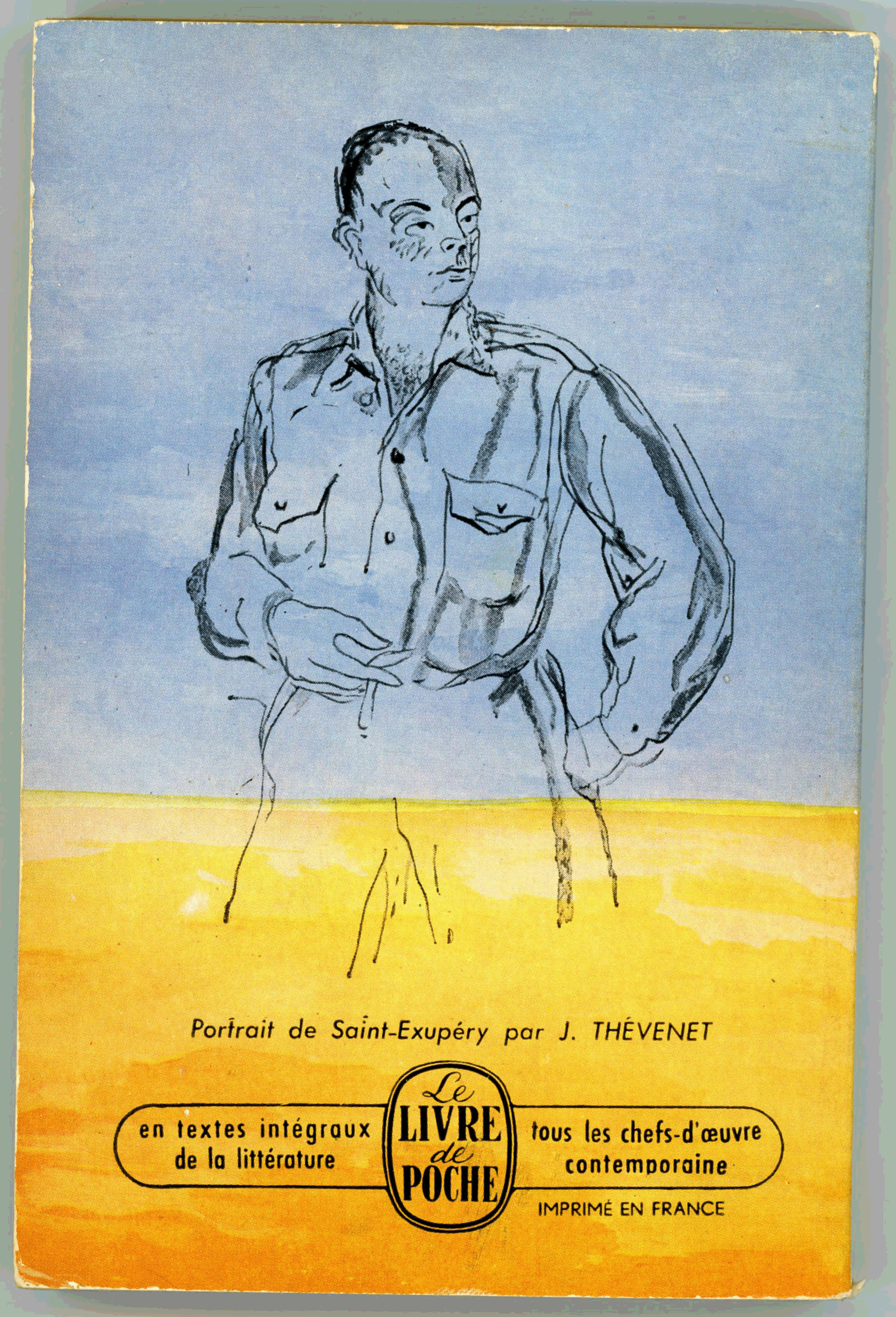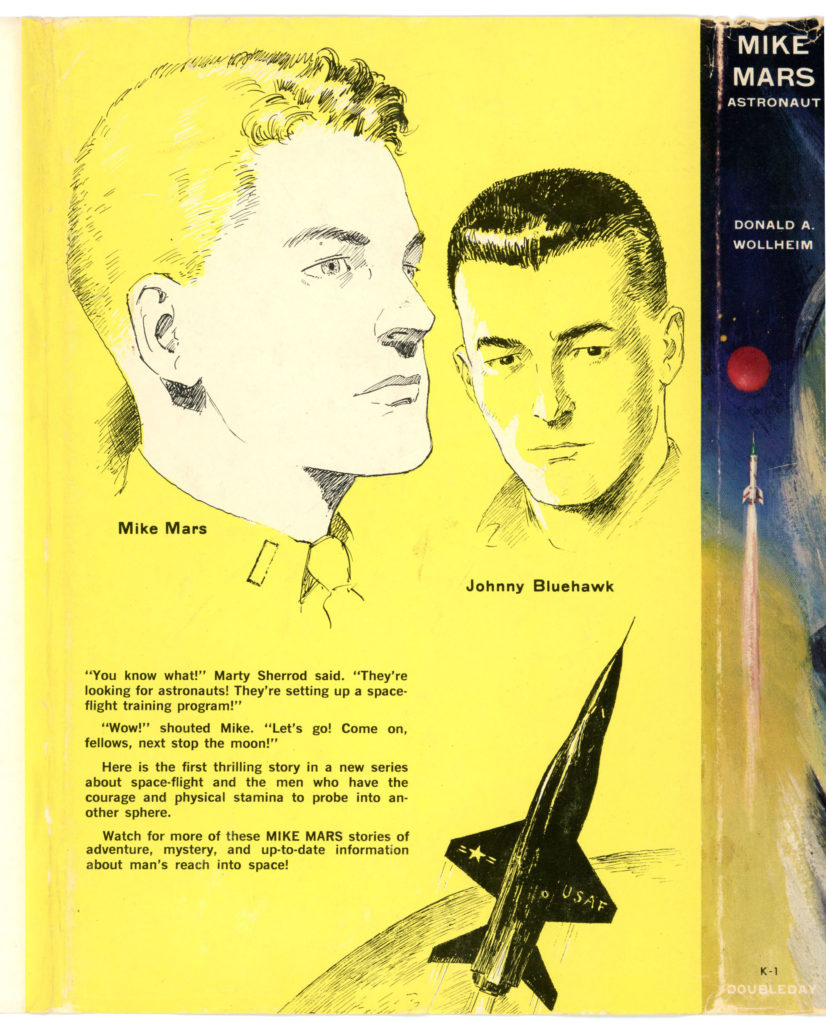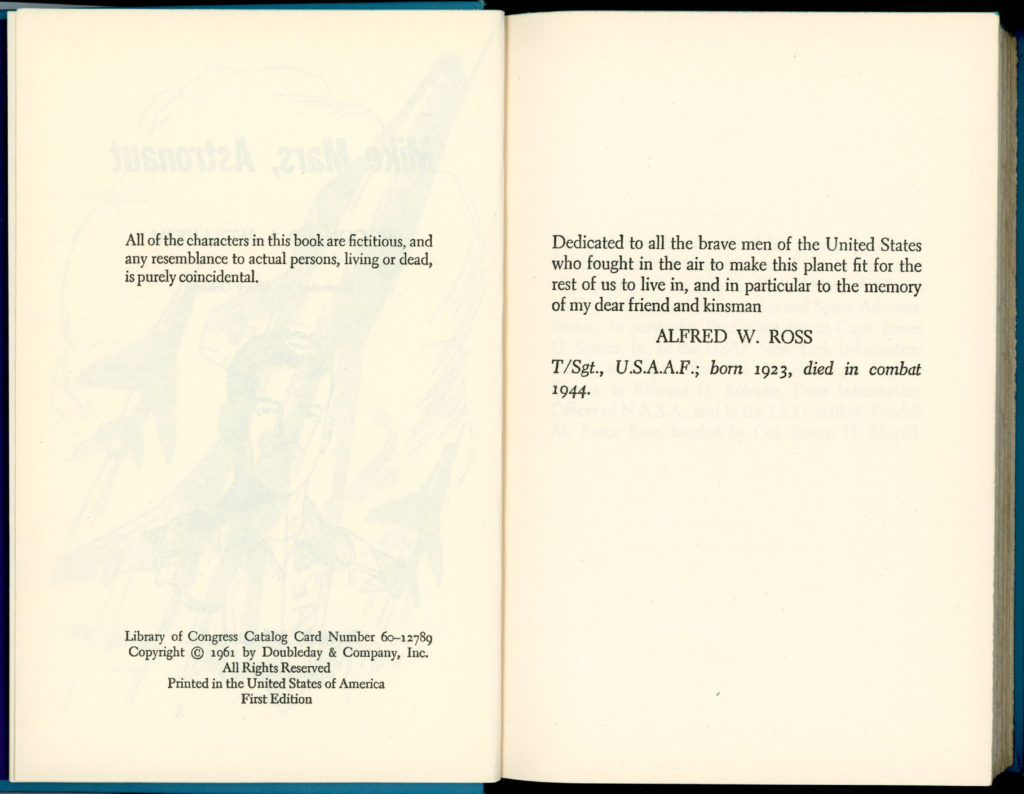Category: Aviation
The Exploration of Space, by Arthur C. Clarke – 1954 [Bob Smallman]
 It seems unlikely that any culture can advance more than a few centuries at a time,
It seems unlikely that any culture can advance more than a few centuries at a time,
on a technological front alone.
Morals and ethics must not lag behind science,
otherwise (as our own recent history has shown)
the social system will breed poisons which will cause its certain destruction.
With superhuman knowledge there must go
equally great compassion and tolerance.
When we meet our peers among the stars,
we need have nothing to fear save our own shortcomings.
No Parachute – A Fighter Pilot in World War I, by Arthur Gould Lee – 1917 (1971) [Edward Valigursky]
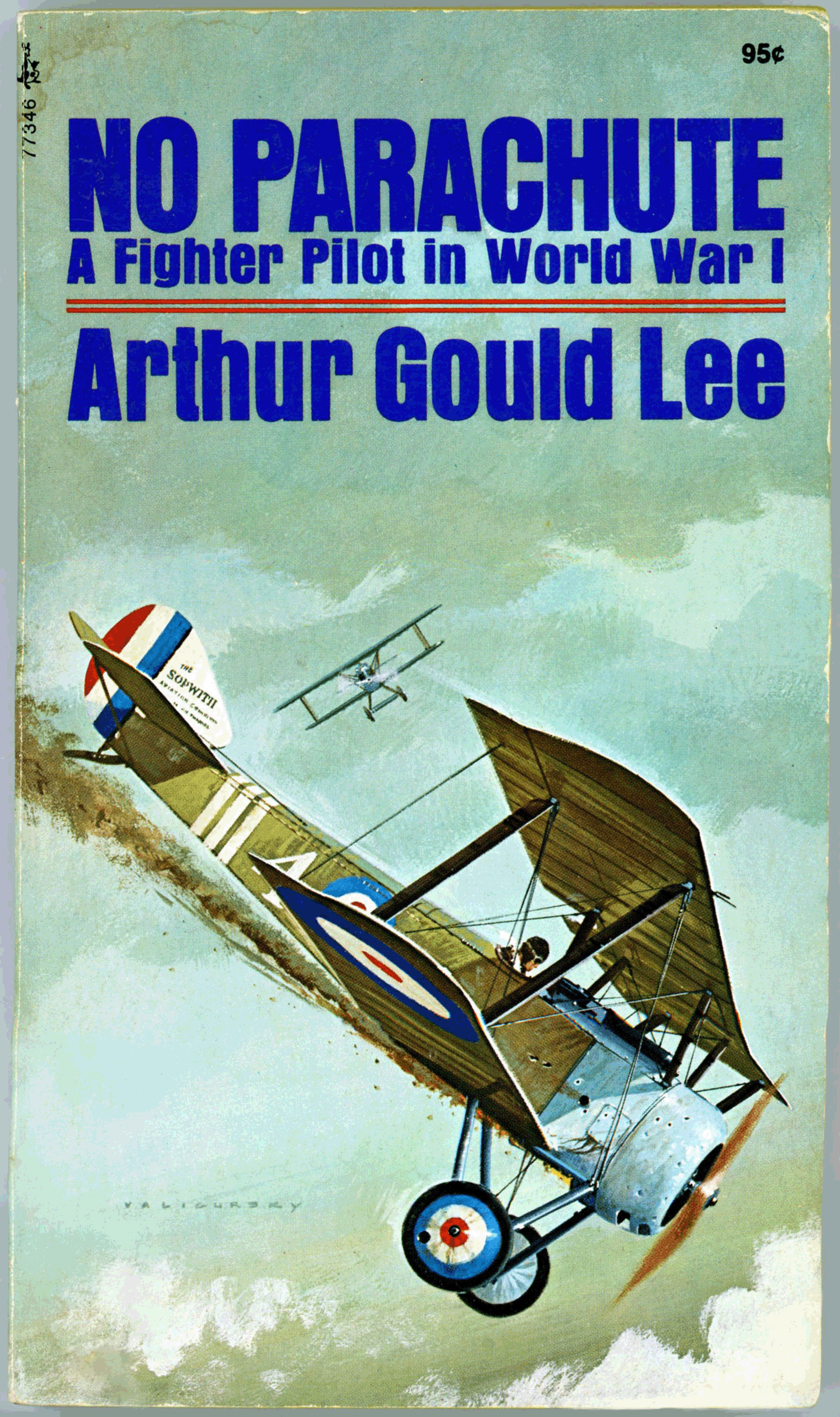 Looking back on this scrap,
Looking back on this scrap,
I realize that however much you’re scared before you start,
once you’re in it you don’t feel excitement or fear,
you fight in a sort of daze.
When it’s over, and you find you’re still alive,
you feel both exhausted and exhilarated.
In fact, what with the sun shining,
and blue sky above,
and the white clouds below, and your engine running smoothly,
and the Pup handling like the spirited thing she is,
you can feel that you’ve enjoyed it.
Like you enjoy a plunge in an icy-cold mountain pool – once you get out of it.
(June 30, 1917)
* * * * * * * * * *
In your last letter you ask why I touch wood just before a scrap when I could pray.
But why should God grant me any special favour?
The Hun I’m fighting may be calling on Him too.
It isn’t as though I have any great faith in religion,
but even if I had,
would it divert a bullet?
Anyway, how can anybody who has to fight believe in God,
with all the mass killings,
and with British, French and German priests all shouting that God is on their side?
How can I call on God to help me shoot down a man in flames?
(September 21, 1917)
* * * * * * * * * *
They talk glibly about danger and bravery and so on,
but they are just words,
they don’t mean a thing.
They ask you how many Fritzes you’ve shot down,
old bean,
as though it’s a cricket score.
They just don’t realize that a machine destroyed means a life ended,
some unfortunate devil,
British or German,
smashed to pulp or burned alive.
Somehow, the air smells cleaner out here.
All the way on the journey back to Izel form London
I had the feeling that I didn’t want to come,
that I was forced to do so because I was in the grip of a vast machine,
like hundreds of thousands of other young men,
helpless,
with no wills of our own,
compelled to come back to danger, maybe death.
Yet as soon as I entered the Mess and was greeted by the chaps,
I had a sensation of coming home.
The familiar cheerful faces, the smiling Mess servants, my batman, even Jock –
and late the N.C.O.s and the men in the flight –
they all made me feel I belonged here, and not to the selfish mob of London.
It was then that I realize what made me so often restless during that leave
was that I was missing the squadron – and the war.
Yes, the war.
Sounds darned silly, but that’s what it was,
the excitement, the unspoken friendliness, the feeling of doing something real.
I hate the war, of course,
yet I was drawn back to it,
I had a queer urge to go back to where I belonged,
even if it was dangerous.
(Friday, November 9, 1917)
Gunner’s Moon, by John Bushby – 1972 (1975) [Unknown Artist]
 “Damned fool!
“Damned fool!
Why on earth didn’t you report sick at home?
Surely there’s a Service unit somewhere near you?”
I gave a short account of my attempt to do so.
He looked surprised, opened his mouth as if to say something and then,
no doubt remembering his obligations to the Medical Trade Union, shut it again;
his criticism of a colleague unvoiced.
Fifteen minutes later I was tucked up in bed in sick quarters
and asleep for the next twenty-four hours.
A week later I was discharged feeling almost human again.
Now if I have dwelt on this little incident
it is because of its subsequent effect on my future, and indeed my life.
As a result of the delay I was transferred back
from No. 3 Manchester Course to No. 4;
the latter not then due to commence for three weeks or so.
Now I believe it fact when I say that
of all those who passed through No. 3 Manchester Course at Finningley
not even one is alive today.
Every crew brought together on that course was eventually killed in action and,
but for a small ‘flu virus, I would undoubtedly have been among them.
I can trace this pattern back from then and also forward into days still to come.
Is it a pattern?
Or is it a series of random, unconnected events
having no logic and no meaning
but to which we who are the subject of such events
illogically attempt to apply logic?
Man has to have a reason for everything.
That is his nature.
More learned men than I could probably dissect,
re-assemble and tie the whole thing up neatly and convincingly
and give that faultless explanation which we seek.
But at night, flying high among the cold stars
and the immeasurable blackness of space;
watching the shooting stars burn themselves out
across our atmosphere and the bright unwinking glare of the eternal planets,
one gets a new slant on things and begins to believe
that maybe there is a purpose and a pattern to it all.
 Not far from Duisberg I had it again,
Not far from Duisberg I had it again,
and this time more strongly than ever before.
I carried on methodically rotating the turret and searching the sky to port,
to starboard and above,
straining to see anything which might mean danger in the night.
Then, over to starboard,
a brilliant flare suddenly dropped out of the sky
and for a few moments bathed the cloud tops in its orange glow.
Against it I saw silhouetted an aircraft,
and there was no mistaking it as a Me-110 night fighter.
He was still about a mile away and on a parallel course.
Then, as the flare died down,
I saw him turn away and be swallowed up in the darkness.
At that precise moment the vague load on my consciousness vanished also.
The feeling came back several times more on subsequent trips.
Whether in some sort of animal reaction
I was beginning to develop an extra-sensory perception of danger
or whether it was just some sheer nonsensical delusion,
I do not know.
Nevertheless I always re-doubled the intensity of my look-out at such times,
and on at least one more occasion it was justified when,
aided and abetted by Dick’s phenomenal night vision,
we were able to evade a stalking night-fighter before he was ready to attack.
I had had this old feeling for several minutes prior to Dick’s warning yell.
At times I wondered whether to mention it,
but forbore to do so because it sounded so foolish.
I compromised on these occasions by muttering down the intercom
something about the possibility of fighters being about
because the flak had suddenly stopped,
or some other reasons which the rest of the crew would accept as normal.
* * * * * * * * * *
Date: Evening of November 22-23, 1942
Operation: Target – Stuttgart
Aircraft: Lancaster Mark I, ED311, “OL * K“
Crew:
Pilot Officer R.N. Williams, DFM (pilot) – POW, Stalag Luft III
Flight Sergeant Thomas Rodham Armstrong (574713) – Killed in Action
Pilot Officer G.M. Bishop, RCAF – POW, Stalag Luft III
Flight Sergeant G.L. Davies – POW, Stalag Luft VI
Flight Sergeant C.H. Crawley – POW, Stalag Luft VI
Flight Officer John Bushby – POW, Stalag Luft III
Pilot Officer O.C.Y. Lambert – POW, Stalag Luft I
Takeoff 1810 Wyton. Hit by light flak while crossing the Normandy coast, homebound, and ditched in the English Channel. A moving account of this crash is reported in the classic book “Gunner’s Moon” by John Bushby. Flight Sergeant Armstrong is commemorated on the Runnymede Memorial. – RAF Bomber Command Losses of the Second World War – 1942, by W.R. Chorley
Flight to Arras, by Antoine de Saint Exupéry – 1942 [Lewis Galantiere]
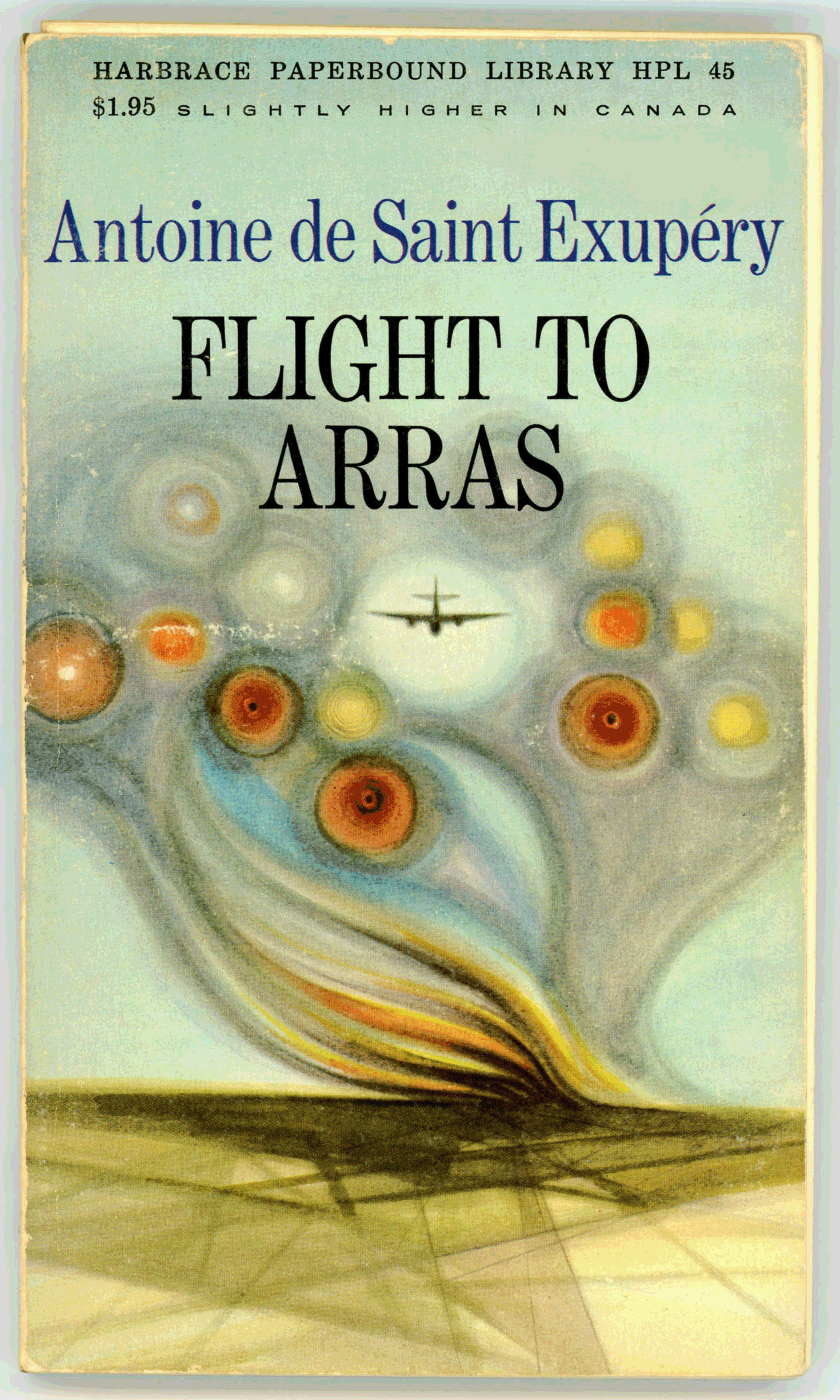 Pure logic is the ruin of the spirit.
Pure logic is the ruin of the spirit.
* * * * * * * * * *
I don’t think highly of physical courage.
Life has taught me that there is only one true kind of courage:
resisting the condemnation of a mode of thought.
I know that it took me much more courage
not to budge from the line of conduct my
conscience dictated to me,
despite two years of slander and insults,
than to photograph Mainz or Essen…

